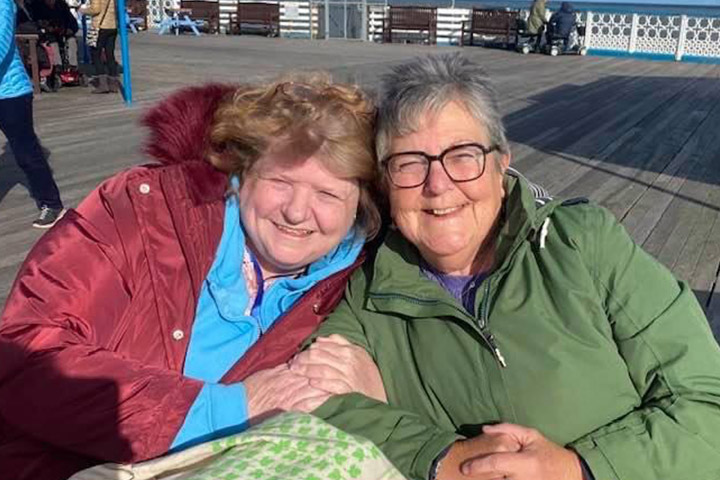Dementia in Younger Ages Mapping Ideal Care (DYNAMIC)
Learn about the DYNAMIC study from the Centre for Applied Dementia Studies.
The DYNAMIC study is funded by the National Institute for Health and Care Research (NIHR) Research for Social Care (RfSC) Programme through grant NIHR204266. The views expressed are those of the author(s) and not necessarily those of the NIHR or the Department of Health and Social Care.

Background
How can we improve social care provision for people with young-onset dementia?
Young-onset dementia refers to when the first symptoms of dementia occur before the age of 65 years. People with young-onset dementia seldom get good social care. Their age and diagnoses mean they have different needs to older people with dementia. This can often affect their families, including dependent children and ageing parents.
Two of the research team were researchers on The Angela Project, the largest study of support for people with young-onset dementia.
They found that social care is key to living well with young-onset dementia and the DYNAMIC study will build on this by identifying how it can be improved.

Aim
We aim to identify key improvements needed in social care for people with young onset dementia and their main supporters (family/friends). We will produce recommendations and resources to enable these improvements.
Project Update
- We have completed 25 interviews with people with young onset dementia and family members, hearing about their needs, experience, and preferred support.
- We have surveyed staff involved in planning and provision of social care to find out about their awareness, knowledge, and practice.
- Analysis of the results from these two work streams is underway.
What we plan to do next
This project runs until October 2025 and involves the following further stages.
- In autumn 2024 we will be holding a stakeholder workshop. We will present and discuss the findings from the interviews and the survey with a diverse group of relevant stakeholders, including professionals and people affected by young-onset dementia. Two or three priority improvements will be identified by this group.
- We will then search for good practices in these priority areas by looking at published evidence and interviewing professionals.
- Using this information, we will work with small groups of stakeholders to co-produce recommendations and resources that address their priorities.
- Findings from the project will be shared widely to influence people in practice, policy, and those affected by young-onset dementia.
Acknowledgements
The DYNAMIC study is funded by the National Institute for Health and Care Research (NIHR) Research for Social Care (RfSC) Programme through grant NIHR204266.
The views expressed are those of the author(s) and not necessarily those of the NIHR or the Department of Health and Social Care.
The DYNAMIC Project team
Additional acknowledgement
Young Dementia Network hosted by Dementia UK are a collaborator on the DYNAMIC project.
Contact the DYNAMIC team
To find out more about the study please contact Helen Young (Research Assistant):
- Email: h.young@bradford.ac.uk
- Tel: 07584 368525
